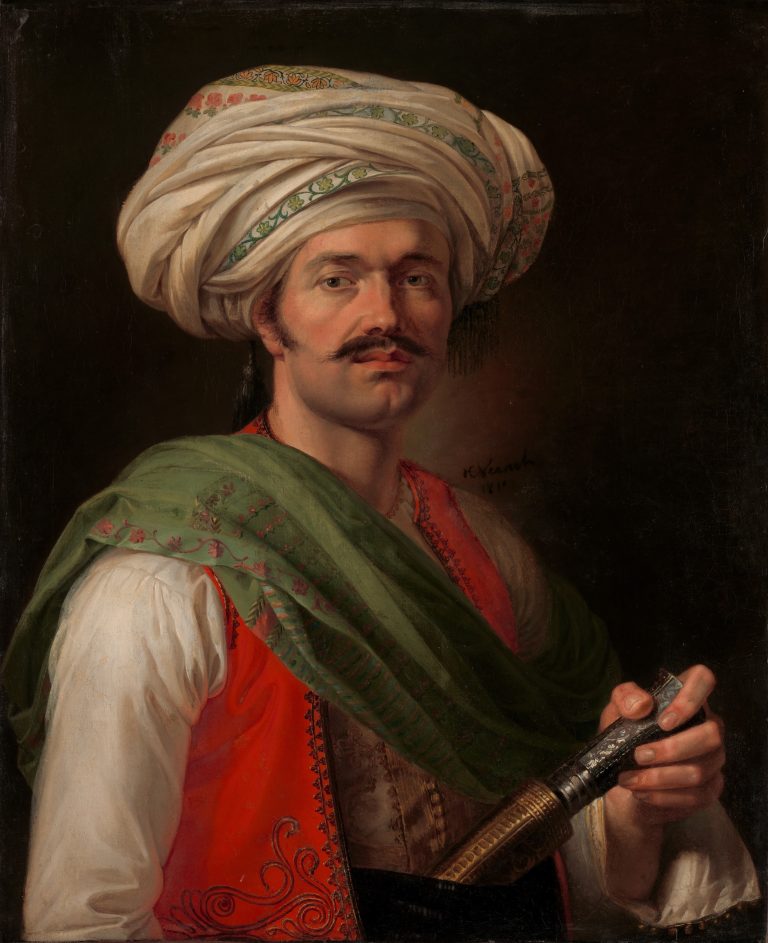Roustam Raza (1783–1845), also known simply as Roustam, was an Armenian-born bodyguard and close attendant of Napoleon Bonaparte, whose remarkable life journey took him from the Caucasus to the heart of the French Empire. Born in 1783 in Tiflis (modern-day Tbilisi, Georgia) to Armenian parents, Roustam was kidnapped at the age of thirteen and sold into slavery in Cairo. This tragic turn of events led to his eventual role in European history.
In Cairo, Roustam was purchased by a wealthy Mamluk and later entered the service of General Napoleon Bonaparte during the French campaign in Egypt (1798–1801). Recognizing his discipline, presence, and loyalty, Napoleon brought Roustam to France and appointed him as his personal bodyguard. Dressed in traditional Mamluk attire, Roustam became an instantly recognizable figure, symbolizing the emperor’s global ambitions and Eastern mystique.
Roustam accompanied Napoleon through many of the major events of his reign, including military campaigns and official ceremonies. He was a constant figure at Napoleon’s side, sleeping outside his chambers, attending coronations and banquets, and even accompanying him to battlefronts. Though he held no formal military rank, Roustam’s closeness to the emperor made him a visible and trusted figure in the imperial household.
Despite his unwavering loyalty for over fifteen years, Roustam refused to follow Napoleon into exile on Elba in 1814. This decision was rooted in fears for his personal safety and possibly disappointment in the political situation. He later settled in Dourdan, France, where he lived a quiet life until his death in 1845.
Roustam authored memoirs that provide rare insight into the daily life and personality of Napoleon Bonaparte. While their historical accuracy has been debated, the memoirs remain a valuable personal account of one of Europe’s most pivotal eras.
Roustam Raza is remembered today as a figure who uniquely bridged East and West. He remains one of the most prominent individuals of Armenian descent to have participated directly in the major political and cultural currents of Napoleonic Europe.

